Most data scientists view data analysis and data science as complex processes involving multiple tasks. However, these tasks are essential for any business that handles large amounts of data. Consequently, having a reliable and powerful laptop is crucial. In this post, you’ll find the best laptops suited for data science.
While data scientists possess specialized skills to understand and analyze data, not all are equally proficient with technology. Thus, finding the ideal laptop for data science can be challenging—and that’s perfectly okay!
1. Dell XPS 15
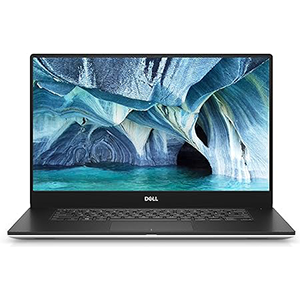
The Dell XPS 9570 is an excellent choice for both professional and personal use, offering unmatched versatility and performance. This sleek and lightweight laptop boasts a powerful configuration within its elegant design, including a 4K touchscreen for enhanced visual clarity.
Powered by the latest 8th generation Intel Core i7 processor, the Dell XPS 9570 delivers impressive processing power. It features 16GB of RAM, a 512GB SSD, and a dedicated NVIDIA GeForce graphics card, making it a formidable machine.
Data scientists will appreciate the Infinity Edge IPS display, which ensures a comfortable view from various angles and features a narrow bezel that enhances the overall aspect ratio. This display is perfect for maintaining focus throughout workdays.
Portability is another strong suit of the XPS 9570. Its slim and sleek design, coupled with the carbon matte finish, makes it an attractive option for on-the-go use. Whether for work or leisure, the Dell XPS 9570 combines style and power seamlessly.
2. Apple MacBook Pro
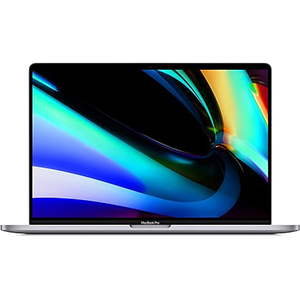
When data scientists seek reliability, there’s no better laptop than the MacBook Pro running Apple’s Mac OS. The MacBook Pro combines a robust configuration with a sleek, durable design, ensuring both top-notch performance and an attractive appearance wherever it’s taken.
The renowned Retina display on the MacBook Pro now includes True Tone technology, which optimizes the screen based on ambient lighting for the most comfortable viewing experience. This display provides stunning visuals and excellent viewing angles.
For smooth multitasking, Apple’s innovative Touch Bar allows data scientists to work more productively. Instead of using a mouse to switch between tabs or software, they can make transitions effortlessly with a simple touch, enhancing overall efficiency.
The MacBook Pro is equipped with ultra-fast 512GB SSD storage, an Intel Core i7 processor, 16GB of RAM, and Intel Iris Plus Graphics 640, ensuring that Apple won’t let data scientists down. This laptop reduces startup time and speeds up file transfers, making it an ideal choice for demanding tasks.
3. Acer Predator Helios 300
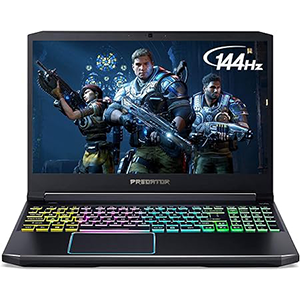
A gaming laptop isn’t just for gaming, and the Acer Predator Helios 300 proves it with an impressive configuration at a great price, making it one of the most valuable laptops available. If you’re looking for high performance without a hefty price tag, this might be your ideal choice.
The Acer Predator Helios 300 boasts serious specs that require efficient cooling to maintain its processing power and overall performance. Acer addresses this with innovative 3D cooling fan blades that reduce noise and improve cooling, regardless of workload intensity.
Equipped with a 9th generation Intel Core i7 processor, a GeForce GTX 1660 graphics card, and 16GB of RAM, this laptop offers plenty of storage space and power. The dedicated graphics card has 6GB of dedicated RAM and is overclockable for enhanced performance.
Despite its high processing power and demanding components, the Acer Predator Helios 300 surprises with a decent battery life. While 3 hours might seem modest by today’s standards, it’s impressive for a portable laptop with such a robust configuration, making it a solid choice for data science and other intensive tasks.
4. Dell Inspiron 15
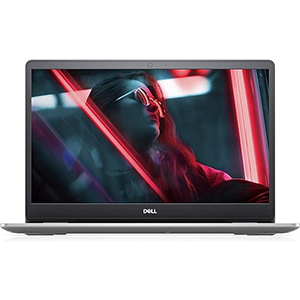
If you’re on a budget and think your options might be limited, the Dell Inspiron 15 5593 is an excellent choice for data science. It offers a solid, upgradeable configuration that delivers great value.
One of the key features of the Inspiron 15 5593 is its dual storage drives, which provide both speed and ample space. This model comes with an Intel Core i5-1035G1 processor at 1.8 GHz, 8GB of RAM, and a 256GB SSD, ensuring quick and responsive performance suitable for data science tasks.
While it lacks a touchscreen, which is a feature found in some other Inspiron models, the Dell Inspiron 15 5593 remains highly functional and effective with its specifications.
Connectivity won’t be an issue with this laptop, as it includes a variety of ports: three USB ports, a headphone/microphone jack, an HDMI port, and a dedicated battery storage space.
Overall, the Dell Inspiron 15 5593 is a reliable and budget-friendly option for data science professionals who need a balance of performance and affordability.
5. ASUS ROG Strix SCAR III
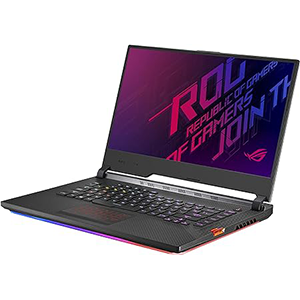
When budget is not a concern, the ASUS ROG Strix Scar III is a top-tier laptop worth considering. This powerhouse features a Hexa-core processor and a robust dedicated graphics card, making it a dream machine for data scientists. It also includes the N-Key Rollover technology, allowing for multi-key inputs, perfect for multitasking.
The ASUS ROG Strix Scar III stands out as one of the most powerful laptops on the market. While its price may be higher than other options, its advanced configuration ensures top-notch performance and an exceptional user experience.
The laptop’s narrow bezel display enhances the aspect ratio, provides better viewing angles, and is easier on the eyes, regardless of how long you use it. Additionally, the high refresh rate of 240 Hz eliminates lag for a seamless visual experience.
For those who rely heavily on Wi-Fi, the ASUS ROG Strix Scar III features the multi-antenna RangeBoost technology, which enhances connectivity and reliability.
Beyond its impressive specs, the laptop’s N-Key Rollover allows for efficient multitasking, enabling you to handle multiple tasks simultaneously with ease. The enhanced Wi-Fi speeds and reliable connection further simplify uploading and downloading files, making the ASUS ROG Strix Scar III a remarkable choice for any data scientist.
Picking The Best Laptops For Data Science In 2024
Performance
Finding a suitable laptop for data science can be challenging and may require a higher budget than a typical laptop. However, the investment is well worth it for the performance gains.
For data science analysis, while 8GB of RAM is acceptable, 16GB is recommended. If you can find a laptop with 32GB of RAM, that’s even better. A quad-core processor is essential, and a dedicated graphics card is desirable depending on the algorithms and software you’ll be using.
Screen Size & Resolution
Pay close attention to screen size and resolution. A thin and lightweight laptop is ideal, and the screen will be your primary interface with your work. We highly recommend an IPS backlit display for the best viewing experience and comfort.
Operating System
Stick with the most widely used operating systems: Mac OS X or Windows. These OS options will support nearly all the software and plugins you need for data science work. While Linux is an option, you might encounter difficulties finding compatible software.
If you choose Mac OS X, stay up to date with the OS updates, which are infrequent but important for maintaining compatibility and performance.


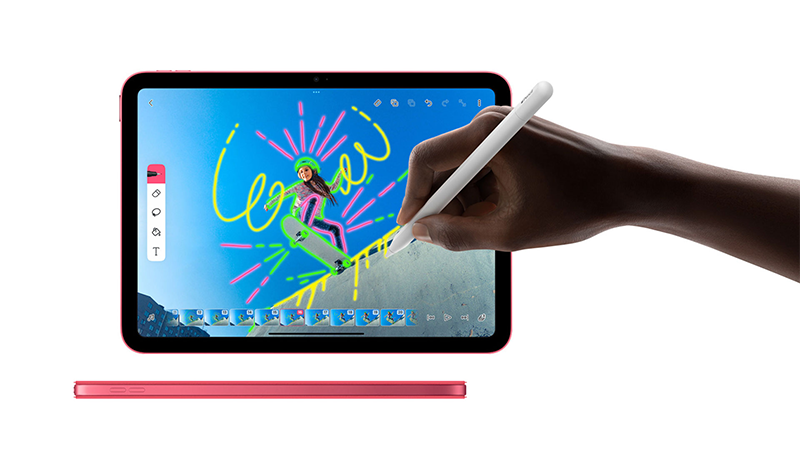


Leave a Reply